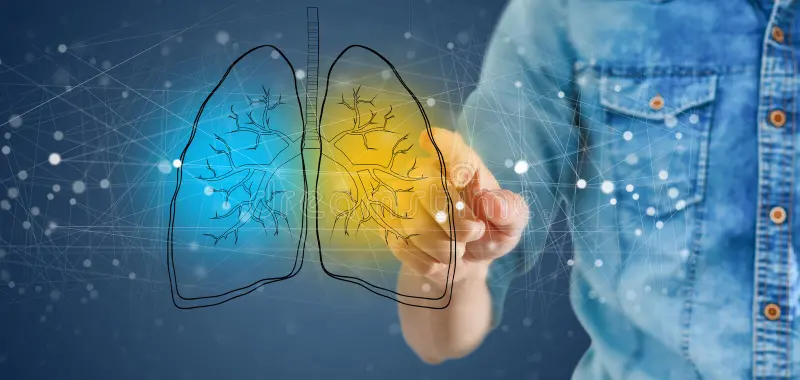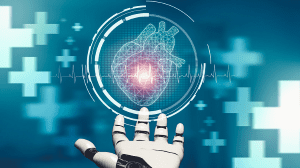Table of Contents
ToggleIntroduction (How to Use Machine Learning in Healthcare)
Machine learning is an innovative field of study that has gained increasing relevance in the healthcare industry. It involves the development of algorithms and computer models that can learn from and make predictions or decisions based on data. Essentially, it allows machines to analyze vast amounts of data and identify patterns, trends, and relationships that humans might not be able to detect. There is less chances of error when using machine learning in healthcare.

Role of Data
In the context of how to use machine learning in healthcare, data plays a crucial role. It serves as the foundation for training the algorithms and models. The more diverse and representative the data, the better the machine learning system can perform.
In healthcare, this data can include patient demographics, medical reports, patient detail and also store lab detail of patients, imaging data, and even genomic data. By leveraging this information, machine learning algorithms can provide valuable insights and predictions for improved healthcare outcomes.
Machine Learning Algorithms and Techniques
How to use machine learning in healthcare encompasses a wide range of algorithms and techniques to process and analyze healthcare data. Supervised learning algorithms are commonly utilized for tasks such as disease classification and prediction. Unsupervised learning algorithms.
On the other hand, are essential for clustering patient data and identifying hidden patterns. Machine learning also help how to work your heart and also yours full body. Additionally, techniques like deep learning and neural networks have shown tremendous potential in image recognition, natural language processing, and even drug discovery. So machine learning algorithm and technique helps allot in healthcare industry.
Healthcare Challenges in Using Machine Learning
Navigating the future of healthcare involves embracing the potential of machine learning. Amid rising costs and limited resources how to use machine learning in healthcare emerges as a beacon of efficiency. This transformative technology addresses diagnostic challenges by analyzing vast amount of patient datasets, reducing errors, and ensuring accurate treatment plans.
Yet, the path is not without hurdles. Balancing privacy concerns and regulatory frameworks is most crucial aspect for everyone. “How to use machine learning in healthcare” requires a delicate harmony of innovation and responsibility, promising enhanced patient care while respecting ethical boundaries.
The journey is intricate, but the destination holds the promise of a revolutionized healthcare landscape. And I personally believe It will fully change the whole industry of healthcare one day. If you think like me , please comment you thought bellow in comment box.
Rising Healthcare Costs and Resource Constraints
One of the major challenges faced by the healthcare industry is the continuously rising costs and limited resources. The demand for quality healthcare services is increasing, while the available resources remain finite. Machine learning also decreased job in health care department How to use machine learning in healthcare offers a promising solution to optimize resource allocation, streamline healthcare processes, and reduce costs.
Diagnosis Accuracy and Medical Errors

Misdiagnosis and medical errors are another critical issue in healthcare. Studies have shown that diagnostic errors contribute to a significant number of adverse events and patient harm. How to use machine learning in healthcare algorithms can enhance diagnosis accuracy by analyzing patient data and also lab data of patience, comparing it with relevant databases, and providing clinicians with valuable decision support.
Personalized Medicine and Precision Healthcare
In recent years, there has been a growing recognition of the importance of personalized medicine and precision healthcare. Every individual is unique, and their response to treatments can vary significantly. How to use machine learning in healthcare helps in identifying patient-specific patterns, predicting treatment outcomes, and tailoring interventions to individuals. This approach holds the potential to revolutionize patient care, making it is more effective and efficient compared to other.
Main challenges in health care today
The healthcare industry faces a multitude of challenges, including improving patient outcomes, reducing costs, and ensuring access to quality care for all and in This time health departments also faced coat using machine learning How to use machine learning in healthcare can serve as a powerful tool to address these challenges by enabling data-driven decision-making, personalized interventions, and efficient resource allocation.
What are the major challenges for health care system in rural areas in Using Machine Learning
Rural areas often face unique challenges in delivering healthcare services due to limited access to specialized care, shortage of healthcare professionals, and inadequate healthcare infrastructure. How to use machine learning in healthcare can help overcome these challenges by enabling remote patient monitoring, in rural area live low equate people. telemedicine, and personalized treatment plans that consider the specific needs and limitations of rural communities.
Disease Diagnosis and Predictive Analytics
In the realm of healthcare, the transformative power of machine learning shines brightly in disease diagnosis and predictive analytics. It is Unlocking unprecedented insights, how to use machine learning in healthcare propels a new era of precision. By meticulously analyzing vast amount of datasets, machine learning algorithms discern subtle patterns, empowering early disease detection.
This innovative approach not only enhances diagnostic accuracy but also revolutionizes our ability to forecast and manage epidemics. In the intricate web of healthcare, the strategic incorporation of machine learning ensures a future where proactive measures and personalized interventions become synonymous with effective healthcare delivery. If the disease diagnosis and predictive analytics get fully accurate, it will help allot humas, it will be unbelievable for everyone. Through this technology we can prevent our future. It is surprising. What do you thing ???
Predicting Disease Outbreaks and Epidemics
How to use machine learning in healthcare algorithms can analyze vast amounts of epidemiological data, such as symptoms, geographic information, and population demographics, to predict disease outbreaks and epidemics. By detecting early warning signs, public health officials can take proactive measures to mitigate the spread of diseases and allocate resources efficiently.
Early Detection of Chronic Diseases
Through the analysis of patient data, how to use machine learning in healthcare algorithms can identify early signs and risk factors associated with chronic diseases like diabetes, cardiovascular diseases, and cancer. This early detection enables timely interventions, leading to better patient outcomes or reduced healthcare costs.
Improving Diagnostic Accuracy and Reducing False Positives
How to use machine learning in healthcare can augment the diagnostic capabilities of healthcare professionals by analyzing patients’ medical records, lab results, patient detail and imaging data. By providing decision support, how to use machine learning in healthcare algorithms can reduce false positives and false negatives, resulting in more accurate diagnoses and better patient care.
Treatment Planning and Decision Support
The integration of machine learning heralds a transformative era for Treatment Planning and Decision Support. Leveraging the power of algorithms, healthcare professionals can harness data insights to craft optimal treatment plans of patents. The fusion of patient characteristics, medical history, and treatment outcomes fuels a personalized approach.
This innovative synergy ensures precision in decision-making accuracy, enhancing patient care. As we explore how to use machine learning in healthcare, the marriage of data-driven strategies with medical expertise emerges as a beacon for refined and effective treatment methodologies. So it (Treatment Planning and Decision Support ) is very important.
Optimizing Treatment Plans and Recommendations
How to use machine learning in healthcare algorithms can analyze large datasets that include patient characteristics, medical history and also lab result , and treatment outcomes to identify optimal treatment plans and recommendations. By considering various factors, such as drug interactions, comorbidities, and genetic markers, how to use machine learning in healthcare can assist clinicians in designing personalized treatment strategies.
Predicting Treatment Outcomes and Identifying Risks
How to use machine learning in healthcare can analyze patient data and historical treatment outcomes to predict the effectiveness of specific interventions and identify potential risks. By leveraging this knowledge, clinicians can make informed decisions that maximize the chances of successful and machine learning also a best medicine provides treatment while minimizing adverse effects.
Guiding Prescription and Medication Management
How to use machine learning in healthcare algorithms can analyze patient data and patients medicine, including medical history, genetic information, and drug interactions, to provide personalized recommendations for prescription and medication management. By considering individual factors and potential risks, how to use machine learning in healthcare can optimize medication regimens and reduce adverse drug reactions.
Health Monitoring and Remote Patient Care in Using Machine Learning

In the sector of healthcare, leveraging the power of machine learning transforms Health Monitoring and Remote Patient Care. By incorporating how to use machine learning in healthcare, we pioneer a new era of personalized well-being. This innovative approach, embedded with advanced algorithms, allows for real-time tracking of vital signs and chronic conditions, ensuring timely interventions of remote patients.
Through wearable devices and sensor technology, ‘how to use machine learning in healthcare’ optimizes patient care beyond geographical constraints, promising a future where healthcare is not just reactive but proactive and personalized for everyone.
Remote Vital Signs Monitoring and Chronic Disease Management
How to use machine learning in healthcare, in conjunction with wearable devices and advanced sensor technology and also available without wired, can enable remote monitoring of vital signs and chronic disease management. Real-time data collection and analysis allow healthcare professionals to detect deviations from normal parameters, intervene early, and prevent complications.
Wearable Devices and Sensor Technology in Using Machine Learning
Wearable devices equipped with sensors can collect a wide range of physiological data, such as heart rate, blood pressure, and sleep patterns. How to use machine learning in healthcare algorithms can analyze this data to identify patterns, trends, and anomalies, providing valuable insights for personalized healthcare interventions.
Real-time Alerts and Intervention
How to use machine learning in healthcare algorithms can generate real-time alerts based on sensor data and store patients result, helping healthcare professionals identify critical changes in patients’ health conditions. This timely information facilitates prompt intervention and can potentially save lives, especially in emergency situations.
Challenges and Ethical Considerations in Implementing Machine Learning in Healthcare
Bringing machine learning into healthcare comes with challenges and important ethical concerns. Keeping patient information safe is a big priority of any institution of healthcare , so we need strong privacy rules.
Regulations need to keep up with technology to make sure everything is safe and effective to everyone. We also need to be careful about biases in the computer programs we use. It’s like finding a balance between making healthcare better with technology while making sure we’re doing it the right way. Figuring out “how to use machine learning in healthcare” correctly is key for making healthcare better for everyone.
Privacy and Security Concerns in Using Machine Learning
How to use machine learning in healthcare relies on vast amounts of sensitive patient data, which raises concerns regarding privacy and security. Ensuring data protection and preserving patient confidentiality are of utmost importance. Institutional policies and legal frameworks need to be in place to regulate the collection, storage, and use of healthcare data. Most of the instate take care this thing very efficiently.
Regulation and Validation

Regulation plays a critical role in ensuring the safety and efficacy of how to use machine learning in healthcare applications. The validation and evaluation of how to use machine learning in healthcare systems are necessary to establish their accuracy, reliability, and clinical utility. Building trust in the adoption of how to use machine learning in healthcare requires robust validation processes and continuous monitoring of performance.
SUMMARY
Explore the transformative realm or sector of machine learning in healthcare, a beacon of efficiency amid rising costs. “How to use machine learning in healthcare” navigates challenges, optimizing resource allocation, reducing errors, and ensuring accurate treatment plans for the patient. Balancing privacy concerns is crucial, promising enhanced patient care with ethical responsibility.
The journey is intricate, promising a revolutionized healthcare landscape. Rising costs and resource constraints find a solution in machine learning, offering a delicate harmony of innovation and responsibility. Personalized medicine gains significance, and remote patient care sees a proactive shift. Challenges in rural healthcare find support through machine learning, providing tailored interventions.
Disease diagnosis and predictive analytics mark a new era of precision. Overcoming hurdles, machine learning shapes the future, promising refined and effective treatment methods. Privacy and security concerns drive the need for robust regulations, emphasizing the importance of validation for building trust in machine learning adoption in healthcare. It is revolutionizing the whole healthcare industry.
FAQs
Machines play a crucial or vital role in the medical field, aiding in diagnostics, treatment, and monitoring. X-ray machines, MRI scanners, and ultrasound devices and more, for example, help visualize internal structures of body, while ventilators assist patients in breathing. In this way machines are used in medical field.
2. How is machine learning used in public health?
Machine learning contributes a essential role to public health by analyzing vast amounts of data to identify patterns and predict disease outbreaks. It helps in personalized medicine, risk prediction, resource allocation and more. Could you share specific examples of how machine learning benefits public health strategies? , if you know please share your words with us.
3. Which machine is used in healthcare?
Various machines are employed in healthcare, such as MRI (Magnetic Resonance Imaging) machines, CT (Computed Tomography) scanners, and ECG (Electrocardiogram) devices. There are also several machines that helps in medical field such as
- MRI Machine (Magnetic Resonance Imaging)
- CT Scanner (Computed Tomography)
- X-ray Machine
- Ultrasound Machine
- ECG Machine (Electrocardiogram)
- Ventilator
- Infusion Pump
- Blood Pressure Monitor
- Dialysis Machine
- Pacemaker ……
4. What are machines at the hospital called?
Machines at the hospital encompass a wide range, from diagnostic machines like CT scanners to life-support equipment like ventilators. and so on…
5. What is an example of machine learning in healthcare?
Machine learning in healthcare is exemplified by predictive analytics for disease risk, personalized treatment plans, and image analysis for diagnostics. How does machine learning enhance the accuracy and efficiency of healthcare processes, ultimately benefiting patients and medical professionals alike? Do you know?
You Can Read Also This Articles 👇👇👇
The main objective of industrial robots
What are The uses of autonomous robots
What is the work of virtual assistant
What Are Two Successful Application Of AI In Business
Future of AI In Education System
How does AI help in healthcare
How to use machine learning in healthcare
How are autonomous vehicles testbed
How can Artificial intelligence be used in the world of education

I am an Engineer and Passionate Blogger, who loves to share Deep, purified and Latest Information about IT (Information Technology) sector. Read More….

Leave a Reply